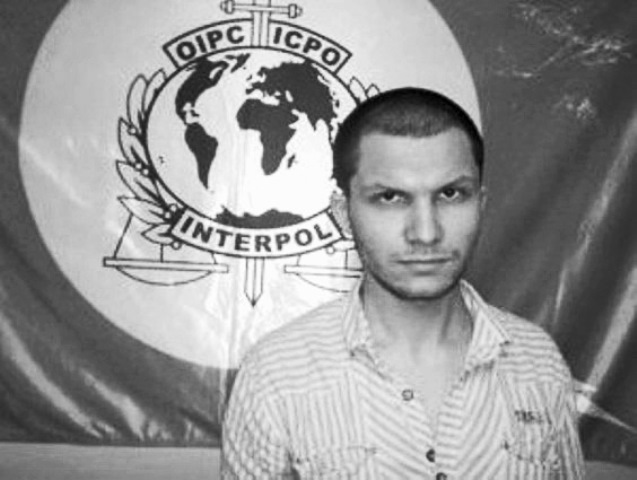Image credit: Interpol (2013).
It appears that swift extradition to third countries is not all that uncommon, although it appears that many nations, though not including the United States, tend to condemn this practice. Typically during these swift extraditions to third countries the detained person’s home country is not notified.
Some skeptics, including attorney Loren Collins who has recently offered me legal aide and advocacy, believe that a U.S. citizen being extradited to a third country while out of the U.S., on charges that he didn’t know existed before leaving the U.S., truly and sincerely is something that Americans should be alarmed and concerned about.
Furthermore, most skeptics believe that even if such extradition does exist that there would at very least be an official, unbending authoritative extradition procedure which would be firmly adhered to without deviation or reservation.
As stated at the head of this report such practice is not all that uncommon. It’s even happened right here in the Dominican Republic, without formal extradition proceedings.
During the summer of 2013 a Russian national named Aleksander Panin was visiting the Dominican Republic when he, as he was readying to return to Russia, was detained by Dominican police (at the request of Interpol) for extradition to the United States of America.
The charges related to creating and selling a bank-robbing computer virus (US District Court, Northern District of Georgia).
Approximately twenty-four hours (24 hours) later, without launching a formal extradition proceeding, they put him on a plane from the Dominican Republic to the United States (Atlanta), where he was met by federal agents who took him into custody and subsequently transferred him to a a jail.
This happened without Russia’s consent or knowledge. Moscow deemed Aleksander Panin’s extradition as “unacceptable.”
The Russian Foreign Ministry confirms that Russian officials were not contacted before Panin was whisked off to the United States.
Furthermore, Russia does not have an extradition treaty with the United States.
Their are dozen of other similar other cases:
On July 22 2013 a Russian citizen named Dmitry Ustinov was swiftly extradited (again without Russia knowing) to the United States from Lithuania. He was allegedly engaged in smuggling night-vision goggles.
In May 2010, a Russian pilot named Konstantin Yaroshenko was arrested in Liberia (Africa) and swiftly transported (again without Russia knowing) to the United States on charges of drug trafficking. In 2011 was sentenced to 20 years in prison for allegedly conspiring to smuggle cocaine into the United States.
Read more at:
Moscow rips into ‘vicious practice’ of extraditing Russian nationals to US
Island Vacation Costs Russian Hacker Aleksandr Panin
Coder Behind Notorious Bank-Hacking Tool Pleads Guilty
Please exercise your free speech in the comments section below. There are no stipulations of political correctness on this blog. Speak your mind, give us your thoughts, both objective and subjective. Share your ideas, hunches, inklings or your expertise. Please provide recommendation and corrections if you spot errors in fact within the blog report. Lastly, remember that posting a comment is much like casting a vote, so please do so.










See, that’s good material. Because it’s exactly these sorts of extradition cases that illustrate that the procedures being utilized to extradite you, Lucas, are NOT typical.
First of all, these extraditions were all handled this way because Russia doesn’t have an extradition treaty with the United States, and so the U.S. had to take advantage of the opportunity when the suspects left Russia and went to countries that *did* have extradition treaties with the U.S.
Whereas Kenya has an extradition treaty with the United States, so there’s no need for them to involve the Dominican police. They would just need to follow normal extradition procedures. Their failure to do so opens the door to object to whatever procedure they *are* using.
Second, assuming that you *were* being extradited like Panin, the procedure there is for Kenya to put you on Interpol’s Red Notice list. Interpol puts that list online, and you’re not on it, so that’s clearly not the procedure they’re using. Thus, they cannot fall back on that as justification for extradition.
http://www.interpol.int/notice/search/wanted
Third, it’s a rather critical feature of all three cases above that they were held continuously between their arrest and extradition; they weren’t let out on bond, like you were, Lucas. Those extraditions were handled swiftly precisely to *avoid* letting people out and risk having them flee. Again, this seems to suggest that they’re not following standard procedure, and again, this creates opportunities to object and stop the extradition.
Fourth, and probably most importantly, even though all of these cases involved major international crimes like smuggling, drug dealing, and hacking, what happened when they got extradited? Their home foreign ministry strenuously objected, even if procedure was handled exactly according to Interpol rules. Here it’s obvious that they’re not following Interpol procedures, which makes it incredibly likely that the U.S. would object or intervene. Which is why it’s essential to get the embassy involved, and why I told Bruce to make the call and get them on the job. If Russia’s willing to make an international incident out of protecting a known bank-robbing hacker, the U.S. isn’t going to sit quietly by while Kenya does a shady extradition based on minor bribery charges that Interpol was never informed of.
Short version: there are already so many potential avenues to attack and stop this extradition, the biggest question is simply which one to start with.
However, Lucas D. Smith is not facing extradition from the Dominican Republic to Kenya: